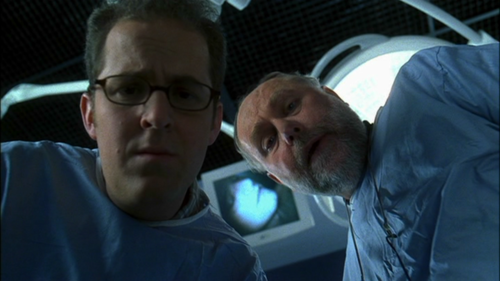Nail your next TV interview: Part 3
/Great TV spokespeople aren't born. They're made. And in this three-part series, we've tried to share some of the tips and tricks used by the people who make great TV interviews look effortless.
In Part 1, we showed you what to do before your TV interview. In Part 2, we told you how to handle yourself during the interview. And in this final post, we're going to share a few tips about what to do after the interview's over to help make sure you're getting the most out of the experience and serving your best interests and those of your company.
Part 3: What to do after your TV interview
Admittedly, when the interview comes to a close, 95% of your work is done. But there are still a few small details to take care of:
Remember the mic may still be on: Just because the reporter says thank you and the camera operator starts putting their equipment away, you're not out of the woods yet. The camera may still be recording and/or the lavalier microphone (the one fastened to your collar) may still be picking up (and possibly recording) your voice. Don't sabotage a good interview by adding some post-interview commentary that you wouldn't want to see on the news or that might inspire the reporter to start asking more questions.
Give the reporter a business card: TV reporters will often get you to spell your name while they're recording you so that they can put your name on the screen later. You can help prevent any spelling mistakes by giving them a business card so they'll have the correct spelling of your name and your title. You might also consider asking the reporter for their business card as well to add them to your contact list.
Say thank you: In most TV interview situations, it's probably appropriate to thank the reporter and the camera person (and anyone else who might be working with them) for the opportunity once the interview comes to a close. Don't make a big production out of it - just a polite thank you should suffice. These are people after all and they have a difficult job to do. This isn't about kissing up to them or trying to influence the angle or approach of the story (because that won't happen). Even if you're dealing with a crisis situation, you might consider thanking them for helping your company get its story out to the public. This is the 'relations' part of media relations that many people ignore.
Ask when the story will air: They may or may not know when the story will air, but it's a good idea to ask. Then, obtain a copy of the story. For larger companies, this is usually done through a media monitoring firm. For smaller companies or individuals, see if you can find the story online or set your PVR to record it.
Do a CSI on your performance: Now, it's time to analyze your work and assess how well you did. Try to be objective. Don't focus too much on physical aspects (how your hair looks, cringe-inducing wrinkles that show up in HD, etc.). Concentrate more on your story and how well it came through in the piece. Which quotes did they select and were these the ones you wanted them to use? Was the story fair? How long were the quotes they selected? If you're happy with your performance, figure out what you did well and write it down so that you'll be able to repeat the same behaviours next time. If you aren't pleased with how the story came out (e.g. they ended up using a quote from someone else but left you out of the story or you were cast in a negative light), try to determine the cause of the problem (e.g. you gave them an interesting but off-topic message they chose to use, you didn't really have an opinion or point of view, your responses were too long, etc.). Again, document your findings so you can build upon them next time.
Do more of what works and less of what doesn't: Media relations is part art and part science. Every situation is different, as is every journalist. But over time, you'll find there are techniques that help you better control the outcome and that help you sidestep potential problems. Figure out what worked and be deliberate about doing more of that in the future. As for the mistakes (and they will happen from time to time), learn from them and continue to move forward. You'll find that over time, your confidence will improve, you'll be better at predicting the journalists' questions and you'll have more control over your media relations outcomes.
The techniques listed here aren't meant to be a definitive list. They're all techniques that have been learned through trial and error over many years of working on both sides of the interview. Hopefully, these techniques can help save you some time and get you on the path to conducting more strategic and successful TV interviews. On that note, when it comes to preparing for a TV interview (or any other kind of media interview, for that matter), nothing beats getting a chance to spend some time doing hard core simulated interviews in a full-day or half-day media training session. It's a great way to help hone your messages, make your mistakes in a risk-free environment, get some constructive and objective feedback and tips from an expert and perfect your performance.
Do you have any tips for conducting better TV interviews? If so, we'd love to hear about your experiences. Please take a moment to include your comments below.




